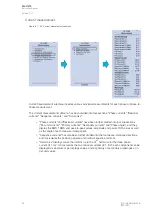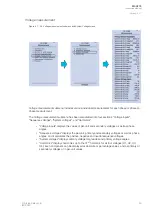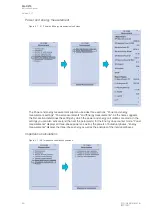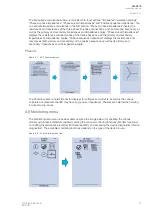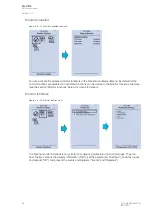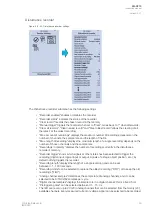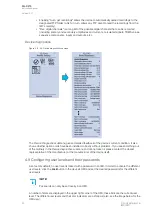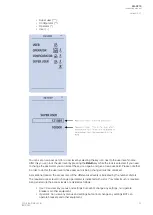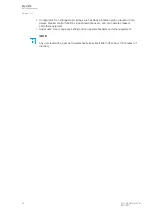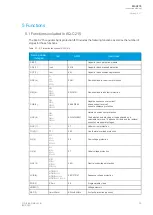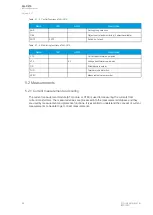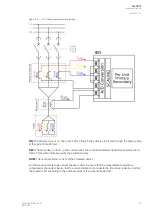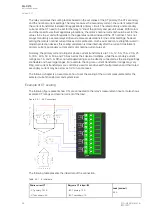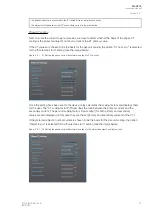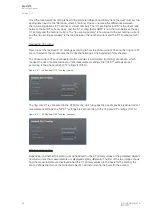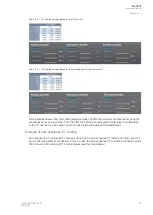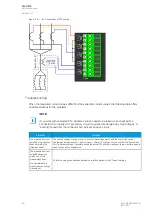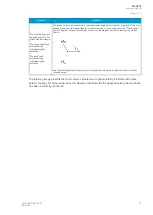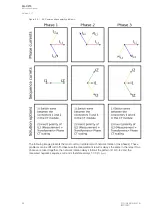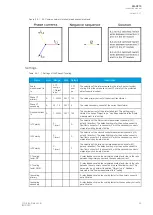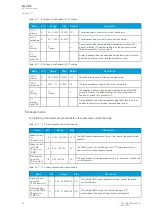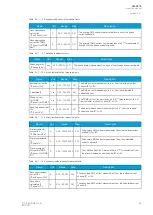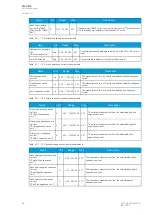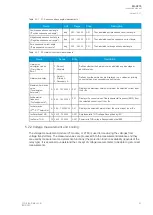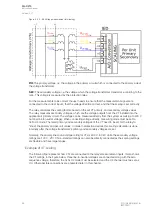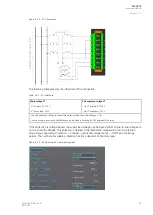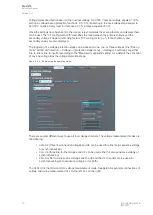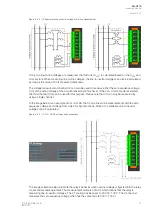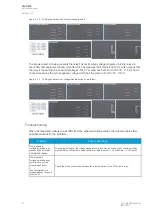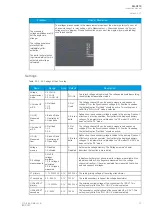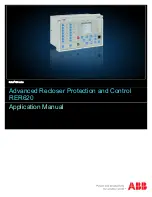
Once the measurement scaling is tied to the protected object's nominal current, the user must set the
appropriate input for the "Nominal current In" setting. One can now see the differences between
the two scaling options (CT nominal vs. object nominal). The "CT scaling factor P/S" is the direct ratio
between the set CT current values, and the "CT scaling factor NOM" is now the ratio between the set
CT primary and the nominal current. The "Ipu scaling primary" is now equal to the set nominal current,
and the "Ipu scaling secondary" is the ratio between the nominal current and the "CT scaling factor P/
S".
Residual I0 CT scaling
Next, we set the residual IO CT scalings according to how the phase current CTs and the ring core CT
are connected to the module (see the Connections image at the beginning of this chapter).
The phase current CTs are connected to the module via a Holmgren (summing) connection, which
requires the use of coarse residual current measurement settings: the "I01 CT" settings are set
according to the phase current CTs' ratings (100/5 A).
Figure. 5.2.1 - 59. Residual I01 CT scaling (coarse).
The ring core CT is connected to the CTM directly, which requires the use of sensitive residual current
measurement settings: the "I02 CT" settings are set according to the ring core CT's ratings (10/1 A).
Figure. 5.2.1 - 60. Residual I02 CT scaling (sensitive).
Displaying the scaling
Depending on whether the scaling was done based on the CT primary values or the protected object's
nominal current, the measurements are displayed slightly differently. The first of the two images shows
how the measurements are displayed when the CT primary values are the basis for the scaling; the
second shows them when the protected object's nominal current is the basis for the scaling.
A
AQ
Q-C215
-C215
Instruction manual
Version: 2.07
58
© Arcteq Relays Ltd
IM00040

